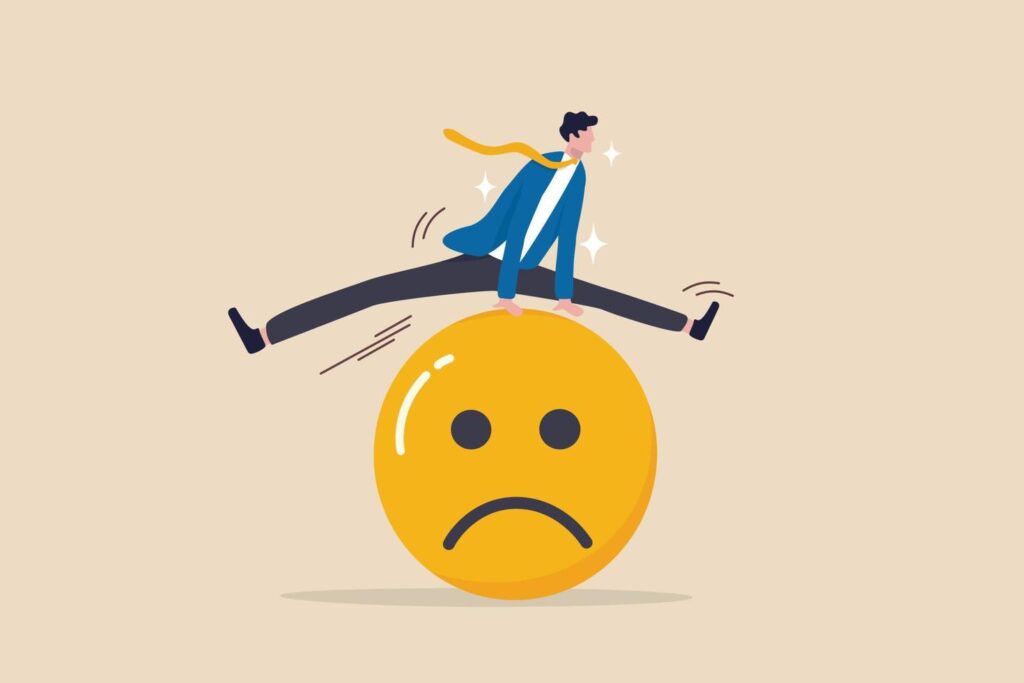
In today’s fast-paced world, many men find themselves battling overwhelming daily stress. Work pressures, family responsibilities, and constant external demands gradually erode our mental peace, paving the way for burnout and diminished well-being. This article explores the roots of stress and provides science-backed, practical techniques designed to restore balance and build resilience. If you’re ready to reclaim your calm with actionable strategies and real-world examples, keep reading. Our comprehensive guide is crafted to empower you to overcome stress and cultivate sustainable mental wellness.
Understanding Stress and Its Impact on Men’s Mental Wellness
Stress is a universal experience, yet its effects on men often come with unique challenges. Daily exposure to work pressure, societal expectations, and personal responsibilities can gradually undermine mental stability. In a society that often encourages men to remain stoic, stress is frequently internalized. This section examines how stress affects men on various levels and why recognizing these effects is a crucial step towards recovery.
Research shows that chronic stress can impair memory, diminish physical health, and disrupt mood regulation. Social norms that discourage open discussions about mental health further complicate this issue. By understanding these pressures, you lay the foundation for an effective strategy to manage and overcome stress.
True mental wellness for men involves not just coping with stress but also comprehending its deeper impacts. When ignored, stress can escalate into burnout, anxiety, or depression. Identifying your personal stressors and recognizing their triggers is essential to tailoring a wellness routine that truly works for you.
Key Insights
- Men experience stress differently: Societal conditioning often forces emotional suppression.
- Acknowledging stress is the first crucial step toward recovery and improved mental health.
- Chronic stress can lead to long-term health complications if not managed properly.
- Data suggests that men are more likely to ignore mental health issues until they escalate.
Practical Techniques to Combat Daily Stress
A proactive approach to stress management can make all the difference. From deep breathing exercises to efficient time management techniques, this section is dedicated to practical steps that men can incorporate immediately. These actionable guidelines empower you to face daily stress head-on.

One proven method is integrating scheduled breaks into your routine. Taking mindful pauses throughout the day resets your mental state and interrupts cycles of tension. Additionally, incorporating physical activities—no matter how short—can boost your mood and reduce cortisol levels. Numerous studies support these practical techniques as effective in stress reduction.
Self-care is equally important, encompassing more than just physical health. Indulge in hobbies, nurture social connections, and take time for emotional relaxation. Stress management is both an art and a science that merges physical activity with mental rest, proving that even small changes can significantly improve your overall wellness.
Breathing Exercises
Deep breathing techniques, such as diaphragmatic breathing, have been demonstrated to significantly lower stress levels by promoting relaxation and focus during hectic moments.
Practice these exercises by slowly inhaling through your nose, holding your breath briefly, and then exhaling steadily. Regular practice can transform this technique into a powerful habit for sustaining mental balance.
Time Management
Adopting robust time management techniques, such as the Pomodoro Technique, can divide your work into focused intervals. This method not only enhances concentration but also ensures you get the necessary mental breaks.
By scheduling short, frequent breaks, you help prevent burnout and cultivate a more balanced daily routine, making it easier to manage stress effectively.
Integrating Mindfulness and Meditation Into Your Routine
Mindfulness and meditation stand as essential tools in the fight against daily stress. These practices help center your thoughts, reduce anxiety, and foster a deep sense of calm. Men who include meditation in their routines often experience enhanced mental clarity and improved emotional resilience.
Mindfulness teaches you to live in the present, while meditation offers a structured approach to quieting an overactive mind. Experts agree that even brief daily sessions can produce significant changes in stress response. Modern neuroscience and ancient practices alike endorse these benefits.
Whether you choose guided meditation apps or mindful walking, integrating these practices into your daily routine can rewire your stress responses, making your mind a sanctuary of calm even amid life’s chaos.
Mindfulness Practices
- Guided Meditation: Use apps that lead you through structured, calming sessions.
- Mindful Walking: Focus on each step and breath to ground yourself in the present moment.
- Journaling: Write down your thoughts to clear mental clutter.
- Gratitude Practices: Reflect on and appreciate daily moments of thankfulness.
Lifestyle Adjustments: Nutrition, Exercise, and Sleep

Sustainable mental wellness is strongly linked to essential lifestyle changes. Men facing daily stress can greatly benefit from a balanced diet, consistent exercise, and quality sleep. This section explores tangible lifestyle adjustments that can significantly enhance both mental and physical health.
Adopting a diet rich in Omega-3 fatty acids, fresh vegetables, and lean proteins not only supports optimal brain function but also stabilizes mood. Similarly, engaging in regular physical activity—even simple exercises like brisk walking—can lower stress hormone levels and boost overall well-being. These lifestyle changes are proven to benefit physical and mental health alike.
Consistent sleep is fundamental to mental restoration. Maintaining a regular sleep schedule helps repair and rejuvenate your body and mind, preparing you to effectively face daily challenges. By making comprehensive lifestyle adjustments, you create an environment where stress can find little room to grow.
Optimizing Nutrition
Focus on incorporating foods abundant in antioxidants, vitamins, and minerals. Fresh fruits, vegetables, and whole grains are vital for brain health and energy.
Reduce intake of excessive caffeine and processed foods, as they can elevate stress levels and cause mood fluctuations.

Exercise and Sleep Hygiene
Regular physical exercise, even in moderate forms such as cycling or brisk walking, triggers endorphin release and promotes stress reduction.
Establish and maintain a consistent sleep schedule—go to bed and wake up at the same time daily—to ensure your body receives the rest it needs.
Building Resilience and Long-Term Mental Strength
Resilience is the cornerstone of lasting mental wellness, allowing you to recover from setbacks and thrive despite adversity. Cultivating resilience involves adopting cognitive strategies and lifestyle habits that create a solid mental framework.
Strengthening your mind over the long term means reframing negative thoughts, viewing challenges as opportunities for growth, and consistently working on healthier habits. Resilience isn’t an innate quality—it’s a skill that develops over time with persistence.
Moreover, nurturing supportive social bonds and seeking mentorship can offer vital emotional support and insightful feedback. Building these connections is integral to your journey toward robust mental health, ensuring you never face challenges alone.

Steps to Enhance Resilience
- Adopt a growth mindset that embraces learning and continuous improvement.
- Practice daily gratitude to shift focus from negativity to positive experiences.
- Connect with peers and professionals who can offer support and guidance.
- Commit to self-reflection by regularly evaluating your progress and challenges.
Contenido Adicional
Achieving and maintaining mental wellness requires creating an environment that nourishes both your body and mind. Men often encounter diverse societal pressures, making it essential to recognize and embrace vulnerability as part of the human experience. This openness can enhance authentic connections and support self-growth.
Explore additional mental wellness strategies such as cognitive behavioral therapy (CBT) techniques that reshape negative thought patterns. Integrating physical fitness with mental clarity bridges modern science and ancient wisdom, enriching your daily routine and reinforcing your long-term commitment to well-being.
Stay informed by engaging with reputable sources like academic journals, health-focused websites, and expert-led workshops. This continuous exchange of information further refines your approach to stress management, enabling you to adapt to life’s inevitable fluctuations. Your journey is unique; always updating your methods with fresh, research-backed insights is key to mastering mental wellness.
For additional support, consider joining online communities or local groups where individuals share experiences, insights, and success stories. These interactions not only offer emotional relief but also introduce innovative strategies for managing daily stress effectively.
Overcoming daily stress calls for a comprehensive strategy that combines practical techniques, mindfulness practices, and lifestyle adjustments with resilience-building exercises. By embracing these strategies, you can reshape your mental wellness journey and enjoy a life of balance, clarity, and inner strength. Remember, mental wellness is a continuous practice—integrate these methods gradually and let your progress evolve naturally. Your journey toward a resilient and harmonious life begins with the commitment to change and the belief that you deserve to thrive every single day.